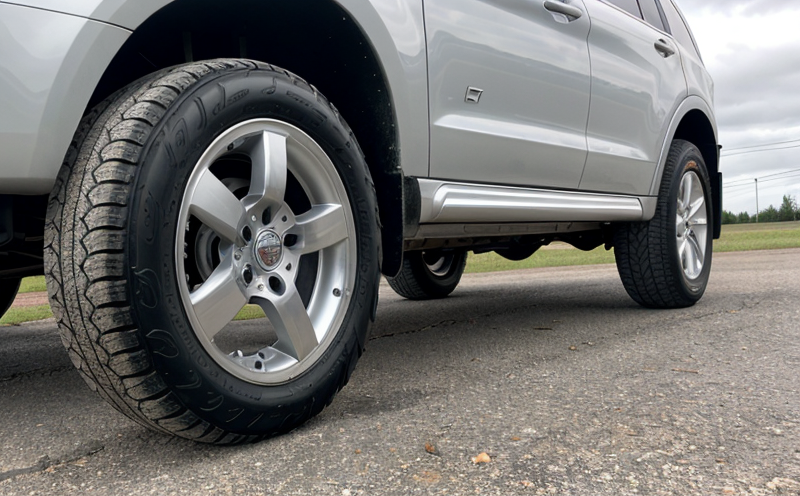EN 13261 Residual Stress Testing of Axles
The European Standard EN 13261 specifies a method for determining residual stresses in railway axles. This critical testing ensures the durability and integrity of axles, which are vital components in ensuring safe and reliable rail transportation systems. Residual stress is an internal state within materials that can affect their mechanical properties and performance over time.
Residual stress arises from various manufacturing processes such as rolling, forging, heat treatment, and welding. It can lead to premature failure of structural parts if not properly controlled. In railway axles, understanding and managing residual stresses is crucial for maintaining the safety and longevity of these components. The standard provides a non-destructive method using x-ray diffraction (XRD) techniques to measure these internal stresses.
The testing process typically involves preparing samples from the axle according to specified dimensions in the EN 13261 document. These samples are then subjected to XRD analysis, which measures changes in crystal structure that indicate the presence of residual stress. The results provide insights into the mechanical behavior of the material under various operating conditions.
Accurate and consistent testing is essential for compliance with international standards like EN 13261. Our laboratory adheres strictly to these guidelines to ensure reliable and repeatable test outcomes. We employ advanced XRD equipment calibrated according to ISO standards, ensuring precision in our measurements. The data generated from this testing helps manufacturers make informed decisions about material selection and process optimization.
Understanding residual stress is not only beneficial for railway axles but also extends to other critical components of the transportation sector such as train wheels and bogies. By adhering to EN 13261, we contribute to enhancing safety standards in rail transportation, which is essential given the growing demand for sustainable public transport solutions.
Our expertise in this area allows us to offer comprehensive testing services that go beyond mere compliance with regulations. We work closely with clients to provide tailored recommendations based on our findings, helping them improve product quality and reliability. This approach ensures that every component manufactured meets not only current standards but also future safety requirements.
Environmental and Sustainability Contributions
- Reduction in waste through extended component lifecycle due to improved design and manufacturing processes.
- Contribution to energy efficiency by ensuring components operate optimally under load conditions, minimizing unnecessary power consumption.
- Sustainable resource management by identifying and mitigating risks associated with material fatigue.
Competitive Advantage and Market Impact
By offering EN 13261 residual stress testing services, our laboratory provides a unique value proposition to clients in the railway and transportation sectors. This service enhances product quality and reliability, thereby improving customer satisfaction and loyalty.
Our compliance with international standards not only ensures regulatory adherence but also positions us as leaders in sustainable manufacturing practices. This reputation attracts high-quality clientele seeking cutting-edge testing solutions aligned with their sustainability goals.
The detailed insights provided through our tests enable manufacturers to innovate and optimize their processes, leading to cost savings and enhanced product performance. These advantages give clients a competitive edge in the market, making them more attractive to potential customers and partners alike.
Use Cases and Application Examples
In railway axles, residual stress can significantly impact durability and safety. For instance, during high-speed operations or frequent starts and stops on urban rail systems, excessive internal stresses could lead to cracks forming over time. Our testing helps identify these issues early, allowing for timely interventions.
The same principles apply to other metal components in the transportation sector, such as train wheels and bogies. By applying EN 13261 standards, we ensure that all parts are manufactured to withstand harsh operating conditions while maintaining optimal performance.
Our laboratory’s expertise extends beyond routine testing; it also includes consultation services aimed at helping manufacturers improve their processes. Through our analysis, they can refine their designs and manufacturing techniques, resulting in better-performing products.





